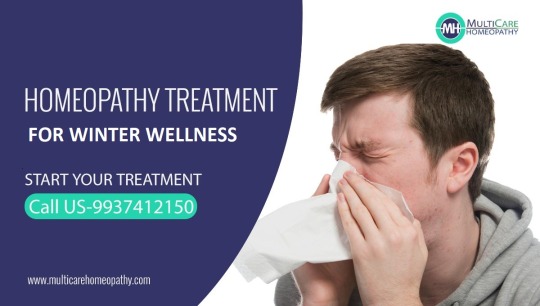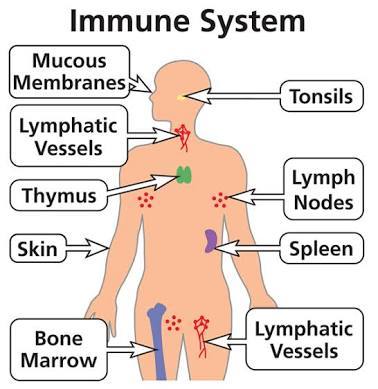#Homeopathy treatments
Explore tagged Tumblr posts
Text

Manage diabetes naturally with our Homeopathy Treatments. Personalized solutions for balanced blood sugar levels. Rediscover wellness with Rich Care.
https://www.richcarehomeopathy.in/diabetes-homeopathy-treatments.php
#DiabetesTreatment, #DiabetesCure, #SugarTreatment #homeopathyclinicinbangalore #homeopathytreatment #treatmenthomeopathydoctors #homeopathyclinicinmysore #homeopathyclinicinhubli #richcarehomeopathy #richcarehomeopathytreatment
#richcarehomeopathybanglore#bangalore treatments#homeopathy treatments#homeopathy treatment#pcod#richcare homeopathy#richcarehomeopathy#homeopathy#hair fall treatments#arthiris treatment
0 notes
Text
The Future of Homeopathy: Trends and Innovations
Homeopathy, a natural form of medicine developed over 200 years ago by Dr. Samuel Hahnemann, continues to evolve and grow in popularity. This gentle and holistic approach to healing uses highly diluted substances to stimulate the body’s own healing processes. As we look to the future, several exciting trends and innovations are shaping the world of homeopathy.
Increasing Integration with Conventional Medicine
One significant trend is the growing integration of homeopathy with conventional medicine. Many healthcare providers now recognize the benefits of combining these two approaches to offer more comprehensive care. This integrative approach can enhance patient outcomes by addressing both the physical and emotional aspects of health. For instance, patients with chronic conditions like spondylitis or sinus issues often find relief through homeopathic treatments that complement their conventional therapies.
Advances in Research and Evidence-Based Practice
Homeopathy is also benefiting from advances in research and evidence-based practice. More rigorous studies and clinical trials are being conducted to validate the effectiveness of homeopathic remedies. This scientific approach is helping to build a stronger foundation of evidence that supports the use of homeopathy for various conditions, including skin issues, respiratory problems, and chronic pain.
Digital Health and Telemedicine
The rise of digital health and telemedicine is another innovation shaping the future of homeopathy. Patients can now consult with homeopathic doctors from the comfort of their homes, making it easier to access care. This is especially beneficial for individuals with mobility issues or those living in remote areas. Telemedicine also allows for continuous monitoring and follow-up, ensuring that patients receive consistent and personalized care.
Personalized Homeopathic Treatments
Personalized medicine is a key trend in healthcare, and homeopathy is no exception. Homeopathic practitioners are increasingly using advanced diagnostic tools and patient data to tailor treatments to individual needs. By considering a patient’s unique symptoms, lifestyle, and medical history, homeopaths can create more effective and targeted treatment plans. This personalized approach can lead to better outcomes and higher patient satisfaction.
Environmentally Sustainable Practices
As awareness of environmental sustainability grows, so does the focus on eco-friendly practices in homeopathy. Homeopathic remedies are derived from natural substances and produced with minimal environmental impact. This aligns with the broader movement towards green and sustainable healthcare practices. Patients seeking environmentally conscious treatments can feel confident in choosing homeopathy as a safe and sustainable option.
Education and Public Awareness
Increasing public awareness and education about homeopathy is crucial for its future growth. Efforts are being made to provide accurate information about homeopathy’s benefits and applications. Educational campaigns, online resources, and community workshops are helping to dispel myths and misconceptions, making homeopathy more accessible to a wider audience.
Transform Your Health with Dr. Anubha’s Expertise in Homeopathy
Dr. Anubha’s Homeopathy Clinic is at the forefront of these exciting trends and innovations. Known as the best homeopathy doctor in Hyderabad, Dr. Anubha specializes in homeopathy treatments for skin conditions, spondylitis, and sinus issues. With a commitment to personalized care, Dr. Anubha uses the latest research and integrative approaches to provide the best homeopathic treatments.
Patients at Dr. Anubha’s clinic benefit from advanced diagnostic tools and customized treatment plans that address their specific needs. The clinic’s holistic approach ensures that both the physical and emotional aspects of health are considered, leading to comprehensive and effective care.
0 notes
Text
#Depression Treatments#Depression Homeopathy Treatments#Homeopathy Treatments#Bangalore Homeopathy Treatments#Richcare Homeopathy
0 notes
Text

Boosting Winter Wellness: Embracing Homeopathy for a Healthy Season
Seasonal shifts and the approach of winter bring with them a host of seasonal ailments that can be challenging to treat. Use homeopathy to protect your family and yourself against a variety of wintertime illnesses, such as skin, hair, and respiratory issues, and to fully enjoy this beautiful season. A comprehensive therapy, homoeopathy functions by fortifying the immune system.
We know that Winter is the cold season, brings with it a host of seasonal ailments, including the common cold, the flu, dry skin, and many others. It also exacerbates the symptoms of a few chronic conditions, such as joint pain, psoriasis, asthma, and sinusitis.
These are seasonal infections that can afflict people of any age, but they are more common in children because of their weakened immune systems. A few illnesses can have serious side effects if they are not treated quickly. Controlling them is therefore essential, and homeopathy is a fantastic tool for managing such severe chronic illnesses. In contrast to other traditional forms of medicine, homeopathy attempts to treat the patient as a whole, not simply the illness or its symptoms.
Below are few winter ills which are commonly seen in most of the people:-
Certainly, during the winter season, various health issues are commonly observed in many people. Some of these winter ailments include:
Common Cold and Flu: Viral infections such as the common cold and influenza (flu) are prevalent during the winter months. Symptoms include sneezing, coughing, congestion, fever, and body aches.
Respiratory Infections: The cold and dry air can contribute to respiratory issues, leading to conditions such as bronchitis, pneumonia, and exacerbation of asthma or chronic obstructive pulmonary disease (COPD).
Dry Skin: Cold temperatures and low humidity levels can result in dry and itchy skin. Conditions like eczema may also worsen during the winter.
Seasonal Allergies: Some individuals may experience allergies triggered by indoor allergens, such as dust mites, pet dander, or mold, which become more prominent when windows and doors are closed.
Joint Pain: Cold weather can exacerbate joint pain and stiffness, particularly in individuals with arthritis or other musculoskeletal conditions.
Seasonal Affective Disorder (SAD): Reduced sunlight exposure during the winter months can lead to a type of depression known as Seasonal Affective Disorder. Symptoms may include low energy, mood swings, and changes in sleep patterns.
Norovirus and Stomach Flu: Winter is also associated with an increased risk of stomach-related illnesses caused by viruses like norovirus. Symptoms include nausea, vomiting, diarrhea, and stomach cramps.
Dehydration: Despite the cold weather, people may forget to stay adequately hydrated. Indoor heating systems can also contribute to dryness, increasing the need for hydration.
Seasonal disease homeopathy treatments are only recommended after a thorough assessment of each patient's symptoms, medical history, and other factors. In these cases, you can consult professional Homeopaths at Multicare homeopathy treatment centre and get rid of various winter illnesses.
Know more:-https://www.multicarehomeopathy.com/start-treatment
#homeopathy treatments#homeopathy clinic#homeopathy doctor#best homeopathy clinic in bhubaneswar#best homeopathy doctor in bhubaneswar#homeopathy treatment for cold and cough#allergy cough and cold
0 notes
Text
Homeopathy clinic in baner

At the Dr. Aparna's Homeopathy clinic in baner we combine our understanding of homoeopathy with cutting-edge medical diagnostics. To get a complete picture of your health situation, we could suggest additional tests or examinations. As a result, we can make a diagnosis that is more precise and build a treatment strategy that is unique to you and your needs. Our homoeopathic treatments are risk-free, painless, and without any negative side effects. They can be utilised in addition to traditional medical procedures, giving your healthcare a complementary approach. People of all ages, including babies, kids, adults, and elders, can benefit from homoeopathy. Because we think it's important to provide our patients the tools they need to take charge of their health, we work closely with you to inform and support you as you go through the healing process.
0 notes
Text
Homeopathy for Health is a website that provides information and resources on homeopathy, a complementary medicine approach that uses highly diluted substances to stimulate the body's natural healing processes.
1 note
·
View note
Text
the draw of pseudoscientific medical practices is really interesting to me cause like...i kinda get it. these con men tend to prey on like...intuition? they peddle things that sound like they COULD make sense, on some "common sense" level, and then get you hooked in before letting loose the truly bonkers stuff.
like, chiropractic for example.
"the central nervous system is located in the spine." yes.
"everything in your body eventually leads back to that system." also yes. go on.
"problems in your spine (bulging disks, pinched nerves, etc) can have pretty big impacts elsewhere in the body." yep, good, with you still.
"so i will now fiddle around with that with no proven method or safety precautions and cure everything from halitosis to cancer. also i learned this from ghosts or something." now hang on i think we need to check ur calculations on that one, chief.
#acupuncture is the same way#like. pressure points exist. in the sense that some parts of your body are especially sensitive.#and sometimes when something hurts. a treatment that causes more pain is actually the answer. (like with a sore muscle or locked up joint)#but then we reverse that logic to say 'there must be a type of pain that will fix everything'#and we're in nonsense territory again.#which is i guess actually the same backwards logic as homeopathy as well.#its almost like all of these use the same logic cause they have the same con men driving them
68 notes
·
View notes
Text
Difference Between PCOS and PCOD with Dr. Deepika
Know the Difference Between PCOS and PCOD with Dr. Deepika and choose the right treatment. PCOS often leads to infertility, weight gain, and insulin resistance, while PCOD causes hormonal fluctuations and irregular cycles. Homeopathy helps balance hormones naturally, manage symptoms, and promote overall well-being.
Visit Us :-
2 notes
·
View notes
Text
*Dr. Smita Goel Homeopathy Clinic*
www.thehomeopathyclinic.co.in
Our immune system is our body’s defense against infections and other harmful invaders. Without it, we would constantly get sick from bacteria or viruses.
Our immune system is made up of special cells, tissues, and organs that work together to protect us.
Normally, the immune system can tell the difference between foreign cells and our own cells.
In an autoimmune disease, the immune system mistakes part of our body, like our joints or skin, as foreign. It releases proteins called autoantibodies that attack healthy cells.
Some autoimmune diseases target only one organ. Type 1 diabetes damages the pancreas. Other diseases, like Systemic Lupus Erythematosus (SLE), affect the whole body..
Women get autoimmune diseases rate is high compared to men. Often the disease starts during a woman’s childbearing years (15Years to 44Years).
Certain autoimmune diseases, like multiple sclerosis and lupus, run in families. Not every family member will necessarily have the same disease, but they inherit a susceptibility to an autoimmune condition.
Because the incidence of autoimmune diseases is rising, researchers suspect environmental factors like infections and exposure to chemicals or solvents might also be involved. Our modern life style, working style and foods are also huge causes.
We don’t know exactly what causes autoimmune diseases. Genetics, diet, infections, and exposure to chemicals might be involved.
The lymph or lymphatic, system is a major part of the immune system. It's a network of lymph nodes and vessels. Lymphatic vessels are thin tubes that branch, like blood vessels, throughout the body. They carry a clear fluid called lymph. Lymph contains tissue fluid, waste products, and immune system cells. Lymph nodes are small, bean-shaped clumps of immune system cells that are connected by lymphatic vessels. They contain white blood cells that trap viruses, bacteria, and other invaders, including cancer cells.
White blood cells are the cells of the immune system. They are made in one of your lymph organs, the bone marrow. Other lymph organs include the spleen and thymus.
When our immune system doesn't work the way it should, it is called an immune system disorder.
• Primary immune deficiency – Be born with a weak immune system.
• Acquired immune deficiency – Get a disease that weakens your immune system.
• Allergic reaction – Have an immune system that is too active.
• Autoimmune disease – Have an immune system that turns against you.
There are some common examples:
• Severe combined immunodeficiency (SCID) is an example of an immune deficiency that is present at birth. Children are in constant danger of infections from bacteria, viruses, and fungi. This disorder is sometimes called “bubble boy disease.”
• Temporary acquired immune deficiencies. Our immune system can be weakened by certain medicines, for example: This can happen to people on chemotherapy or other drugs used to treat cancer. It can also happen to people following organ transplants who take medicine to prevent organ rejection. Also, infections like the flu virus, mono (mononucleosis), and measles can weaken the immune system for a brief time. Our immune system can also be weakened by smoking, alcohol, and poor nutrition.
• AIDS. HIV, which causes AIDS, is an acquired viral infection that destroys important white blood cells and weakens the immune system. People with HIV/AIDS become seriously ill with infections that most people can fight off. These infections are called “opportunistic infections” because they take advantage of weak immune systems.
If we are born with certain genes, our immune system may react to substances in the environment that are normally harmless. These substances are called allergens. Having an allergic reaction is the most common example of an overactive immune system. Dust, mold, pollen, and foods are examples of allergens.
Some conditions caused by an overactive immune system are:
• Asthma: The response in our lungs can cause coughing, wheezing, and trouble breathing. Asthma can be triggered by common allergens like dust or pollen or by an irritant like tobacco smoke.
• Eczema: An allergen causes an itchy rash known as atopic dermatitis.
• Allergic rhinitis: Sneezing, a runny nose, sniffling, and swelling of your nasal passages from indoor allergens like dust and pets or outdoor allergens like pollens or molds.
In autoimmune diseases, the body attacks normal, healthy tissues. The causes are unknown. It is probably a combination of a person’s genes and something in the environment that triggers those genes.
There are some common autoimmune diseases are:
• Type 1 diabetes: The immune system attacks the cells in the pancreas that make insulin. Insulin removes sugar from the blood to use as energy.
• Rheumatoid arthritis: This type of arthritis causes swelling and deformities of the joints. An auto-antibody called rheumatoid factor is in the blood of some people with rheumatoid arthritis.
• Lupus: This disease that attacks body tissues, including the lungs, kidneys, and skin. Many types of auto-antibodies are found in the blood of people with lupus.
So, we should never ignore to our care for immunity system. Homeopathy medicines are a good choice for improving our immunity system.

#greater noida#best homeo clinic in indirapuram#ghaziabad#homeopathy clinics#homeopathy doctor#homeopathy for ibs#best skin doctor in ghaziabad#homeopathy#homeopathy cold treatment in indirapuram#homeopathy medicine#laser treatment in indirapuram#skin specialist in indirapuram#homeopathy skin allergies treatment in indirapuram#homeopathy specialist in indirapuram#indirapuram#best homeopathy clinic in indirapuram#best homeopathy doctor#homeopathy skin allergies treatment in noida#homeopathy treatment#homoeopathy#ghaziabad latest news#best schools in ghaziabad#ghaziabadnews#ayurvedic doctor in ghaziabad#wave city ghaziabad#child doctor in noida#child specialist in noida#noida news#nursery school in greater noida#noida
6 notes
·
View notes
Text

20+ years of existance having branches in 3 cities Bangalore, Mysore & Hubli. We have gain the trust of treating 20K + patients across Karnataka.
Book An Appointment For Consultation | +91-7411955955 | +91-7411055955 | +91-9036619944 | 080-41241822|
https://www.richcarehomeopathy.in/
#homeopathyclinicinbangalore #homeopathytreatment #treatmenthomeopathydoctors #homeopathyclinicinmysore #homeopathyclinicinhubli #richcarehomeopathy #richcarehomeopathytreatment
#homeopathy treatment#richcarehomeopathybanglore#bangalore treatments#richcare homeopathy#homeopathy#richcarehomeopathy#homeopathy treatments#arthiris treatment#hair fall treatments
0 notes
Text
Natural Skin Care with Homeopathy: Remedies for Healthy Skin
Maintaining healthy, radiant skin can be challenging with the increasing exposure to environmental pollutants, stress, and unhealthy lifestyles. Many people seek natural and holistic approaches to skincare, and homeopathy offers gentle yet effective solutions. Homeopathic treatments address the root causes of skin issues, promoting overall health and well-being.
Common Skin Problems and Homeopathic Remedies
Acne: Homeopathic remedies like Hepar Sulphur and Calcarea Sulphurica help reduce inflammation and prevent further outbreaks. These remedies target the underlying imbalances that cause acne, offering long-term relief.
Eczema: Graphites and Sulphur are popular homeopathic treatments for eczema, helping to soothe itching and heal the skin. These remedies work by enhancing the body’s natural healing processes.
Psoriasis: Arsenicum Album and Arsenicum Iodatum are used to manage the symptoms of psoriasis, such as scaling and itching. Homeopathy aims to balance the immune system, reducing flare-ups and improving skin health.
Rosacea: Belladonna and Pulsatilla are effective for treating rosacea, a condition that causes redness and visible blood vessels on the face. These remedies help reduce inflammation and improve skin tone.
Skin Allergies: Rhus Toxicodendron and Urtica Urens are commonly used to treat skin allergies, alleviating symptoms like itching, redness, and swelling. Homeopathy focuses on strengthening the immune system to prevent allergic reactions
Benefits of Homeopathic Skin Care
Holistic Approach: Homeopathy treats the whole person, not just the symptoms. It considers physical, emotional, and mental aspects to provide comprehensive care.
Natural and Safe: Homeopathic remedies are made from natural substances and are safe for all ages, with no side effects.
Personalized Treatment: Each individual is unique, and homeopathy offers personalized remedies tailored to specific needs and conditions.
Dr. Anubbha’s Homeopathy Clinic: Your Destination for Healthy Skin
For the best homeopathic treatment for skin issues in Hyderabad, look no further than Dr. Anubbha’s Homeopathy Clinic. Renowned for being the best homeopathic doctor in Hyderabad, Dr. Anubbha offers top-notch care for a variety of skin conditions using safe and effective homeopathic remedies. The clinic not only excels in homeopathy treatment for skin but also provides comprehensive care for other health issues, including homeopathy treatment for spondylitis, allergies, hair loss, and hypertension.
By choosing Dr. Anubbha’s Homeopathy Clinic, you are opting for a holistic approach that focuses on long-term health and well-being. Visit Dr. Anubbha’s Homeopathy Clinic today and take the first step towards healthier, glowing skin and overall wellness.
0 notes
Text
0 notes
Text


Negative motivation corrodes the spirit, transforming ambition into anxiety. It erects barriers to progress, replacing hope with apprehension. Like a dark cloud, it obscures the path to success, casting shadows of doubt and hesitation. In its grasp, potential withers, suffocated by the weight of pessimism and despair.
#get motivated#reading#poem#long hair#motivateyourself#love poem#artists on tumblr#poetry#motivación#motivating quotes#humor#history#welcome home#hazbin hotel#horror#mental health support#healthcare#health and wellness#mental health#health & fitness#healthylifestyle#treatment#medicine#homeopathy#trends#tech#television#typography#tattoos#txt
5 notes
·
View notes
Text
Homeopathy treatment for diabetes
Homeopathy can be used effectively in the treatment of diabetes. Get the Diabetes Homeopathic Doctors from Star Homeopathy Clinics and treatment without any side effects.
https://starhomeopathy.com/diabetes.php
4 notes
·
View notes
Text
5 Health Benefits Of Consulting A Homeopath
It is best to consult a good homeopathy doctor in India for: -
Getting a treatment free from side-effects
Treatment of acidity
PCOD treatment
Heal skin and hair problems
Treats arthritis, bone and joint problems
#health & fitness#homeopathy#skin treatment#skincare#hair treatment#alopecia#pcod treatment#mental health#pcod#acidity#arthritis#joint pain#osteoarthritis#healthcare
2 notes
·
View notes
Text

This is advice on reducing nausea from the website of a Dutch shrooms and cannabinoid seller. Is this legit? Like I can kinda understand drinking the tea, but rubbing on the wrists? Is this distinct from peppermint extract? Because I thought the extract was hazardous enough to warrant wearing gloves while using it. Does it matter what exactly caused the nausea?
3 notes
·
View notes